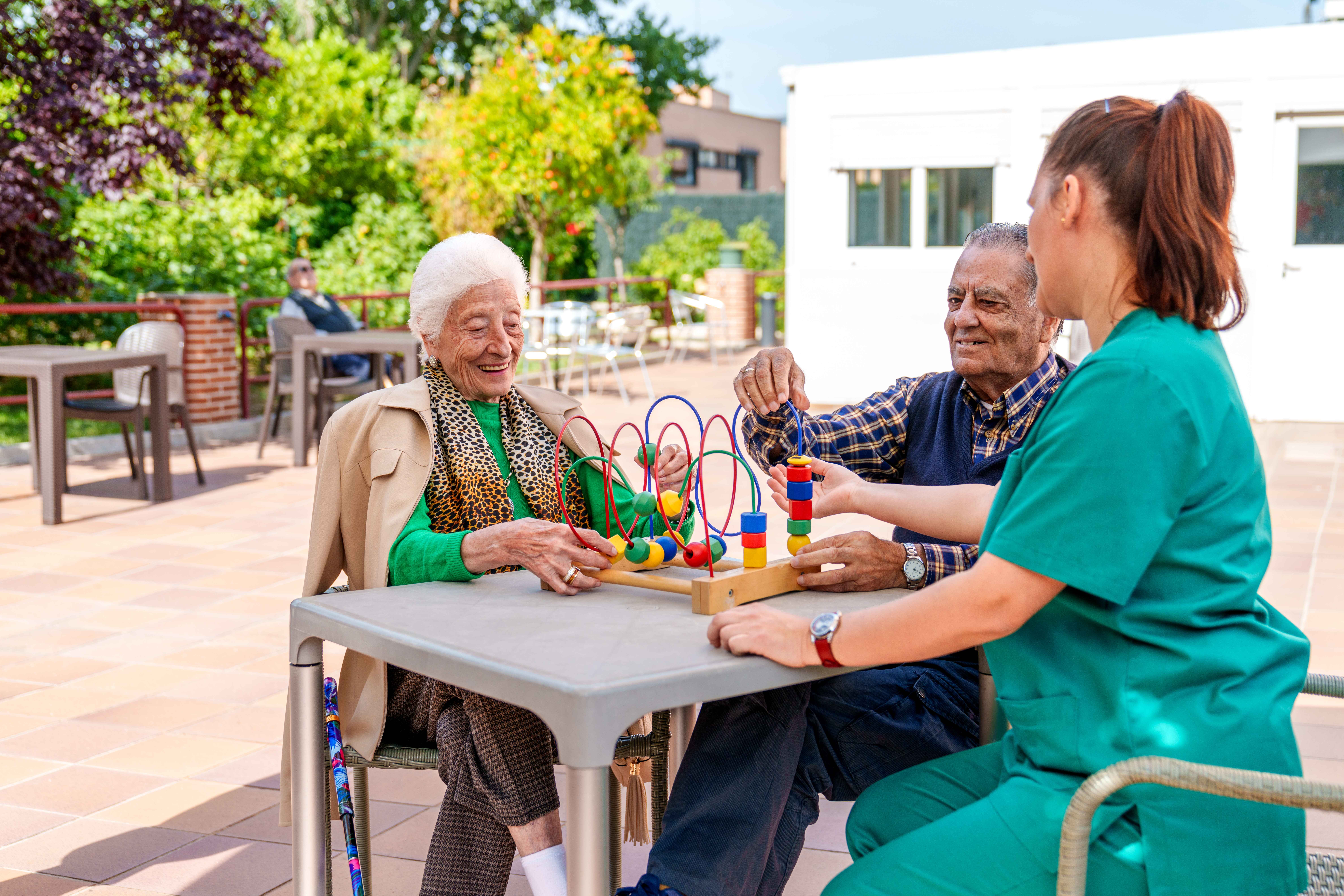How to Handle Dementia with Difficult Behaviors | Expert Tips
Discover effective strategies to manage difficult behaviors in individuals with dementia. Learn practical tips and create a supportive environment for your loved ones.
Caring for someone with dementia can be deeply rewarding, but it also comes with unique challenges, especially when dealing with difficult behaviors. At senior living facilities, creating a supportive and understanding environment for residents with dementia is a priority. Understanding the root causes of these behaviors and applying effective strategies can help ensure their well-being and dignity.
Understanding Difficult Behaviors in Dementia
Dementia affects the brain in ways that alter memory, thinking, and behavior. As a result, residents may exhibit behaviors such as aggression, wandering, agitation, or repetitive questioning. These actions often stem from confusion, fear, or unmet needs rather than intentional misbehavior. By identifying potential triggers, caregivers can better respond with empathy and patience.
Common Triggers for Difficult Behaviors
Environmental Stress: Loud noises, crowded spaces, or unfamiliar settings can overwhelm someone with dementia.
Physical Discomfort: Pain, hunger, or fatigue may lead to agitation or irritability.
Communication Challenges: Difficulty understanding or expressing thoughts can result in frustration.
Routine Disruptions: Changes in daily habits or routines can increase anxiety.
Practical Tips for Managing Difficult Behaviors
Here are strategies to effectively handle challenging behaviors while fostering a positive environment:
Stay Calm and Patient
Reacting with calmness can help de-escalate tense situations. Speak in a soft, reassuring voice and use simple, clear language.Understand the Behavior
Try to determine what the person is trying to communicate through their behavior. Are they hungry, uncomfortable, or feeling unsafe?Maintain a Routine
Establishing and maintaining a consistent daily schedule provides a sense of security and reduces anxiety.Adapt Communication Techniques
Use visual cues or gestures along with verbal instructions.
Avoid arguing or correcting; instead, redirect the conversation or activity to something positive.
Create a Safe and Comfortable Environment
Reduce environmental stressors like excessive noise or clutter.
Provide access to familiar objects and photographs that offer comfort.
Engage in Meaningful Activities
Activities like music therapy, art, or gardening can help channel energy positively and reduce agitation.Validate Their Feelings
Even if the cause of their distress seems irrational, acknowledge their emotions with empathy. For example, saying, “I see you’re upset. Let’s work together to make things better,” can be reassuring.Know When to Seek Professional Help
If a resident’s behavior becomes unmanageable or poses a safety risk, consult with a medical professional or dementia care specialist. They can recommend therapies or interventions tailored to the individual’s needs.
Specialized Care at Senior Living Facilities
Senior living facilities, like Anointed Senior Living, are uniquely equipped to provide compassionate and professional care for residents with dementia. Our staff undergo specialized training to handle difficult behaviors with patience and understanding, ensuring the highest quality of life for our residents.
Final Thoughts
Caring for someone with dementia requires flexibility, creativity, and a deep well of compassion. By focusing on their needs and fostering a supportive environment, caregivers can transform challenging moments into opportunities for connection and care. Remember, behind the difficult behavior is a person still deserving of respect, love, and understanding.
At Anointed Senior Living, we are dedicated to providing exceptional memory care services tailored to the unique needs of each resident. Contact us to learn more about how we can help your loved one thrive in a nurturing environment.
